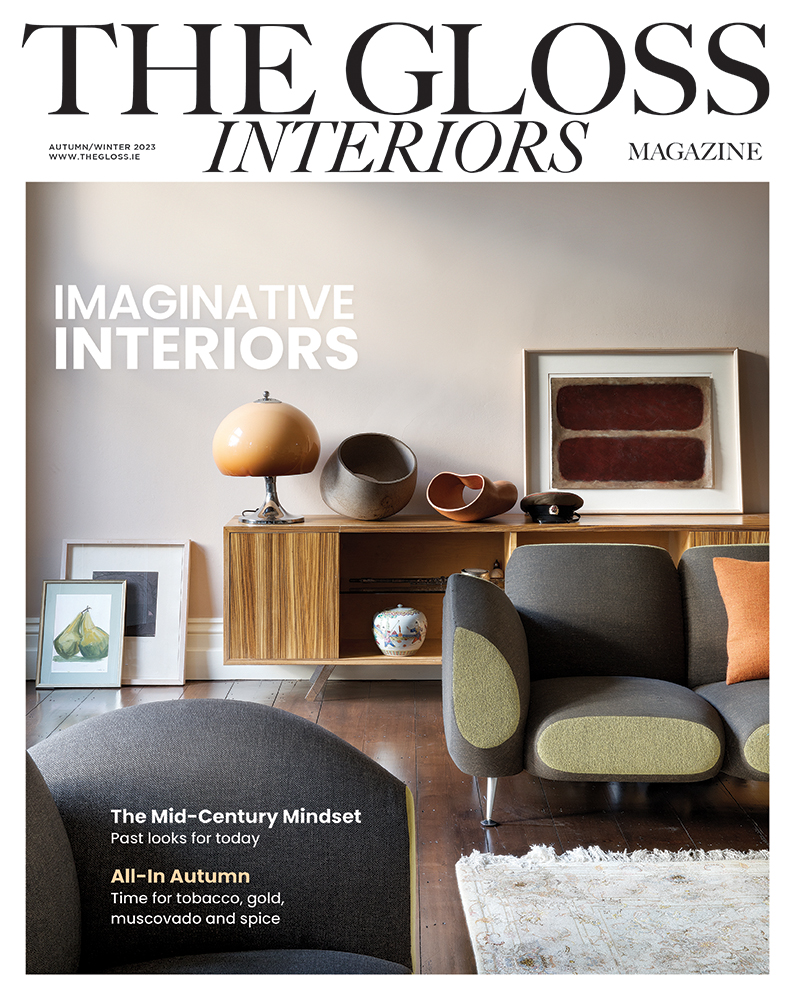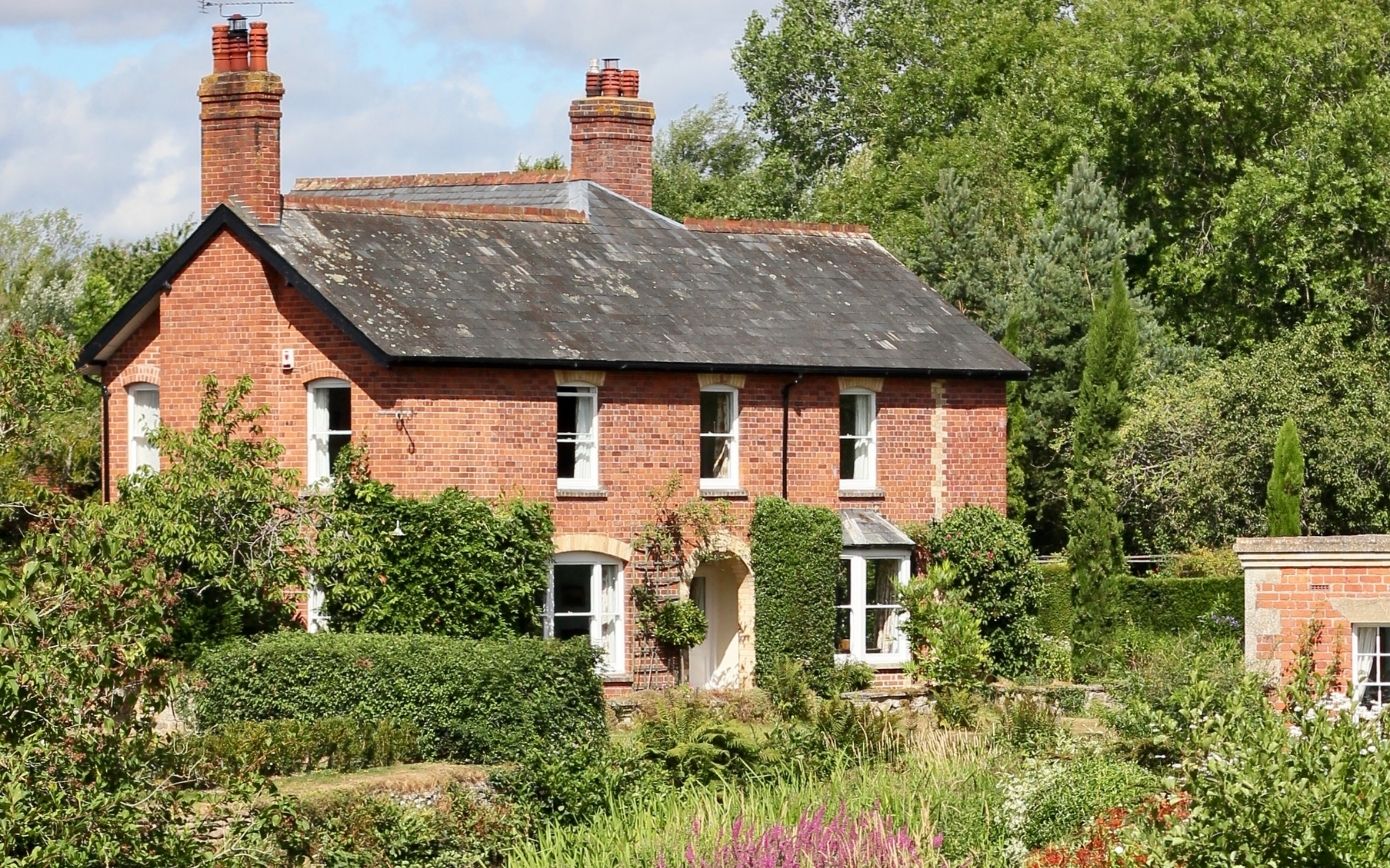Author and playwright DEBORAH LEVY has written a trilogy of “living memoirs”. In Real Estate, Levy imagines and re-imagines her future and the house in which she will live, borrowing features from various houses to complete the picture …
In the winter of January 2018, I bought a small banana tree from a flower stall outside Shoreditch High Street station. It seduced me with its shivering, wide green leaves, also with the new leaves that were furled up, waiting to stretch out into the world. The woman who sold it to me had long fake eyelashes, blue-black and luscious. In my mind’s eye her lashes stretched all the way from the bagel shops and grey cobblestones of East London to the deserts and mountains of New Mexico. The delicate winter blooms at her stall had me thinking about the artist Georgia O’Keeffe and the way she painted flowers. It was as if she were introducing each one of them to us for the first time. In O’Keeffe’s hands they became peculiar, sexual, uncanny. Sometimes her flowers looked as if they had stopped breathing under the scrutiny of her gaze.
She had found her final house in New Mexico, a place to live and work at her own pace. As she insisted, it was something she had to have. She had spent years restoring this low-slung adobe house in the desert before she finally moved into it. A while back, when I made the journey to Santa Fe, New Mexico, partly to see O’Keeffe’s house, I remember feeling dizzy when I arrived at Albuquerque airport. My driver told me it was because we were 6,000 feet above sea level. The dining room in my hotel, owned by a Native American family, had a tall adobe fireplace built into the wall in the shape of an ostrich egg. I had never seen an oval fireplace before. It was October and it was snowing, so I pulled up a chair in front of the glowing logs and sipped a cup of smoky clear mescal, which was apparently good for above-sea-level sickness. The curved fireplace made me feel welcome and calm. It pulled me into its centre. Yes, I loved this burning egg. That fireplace was something I had to have.
The delicate winter blooms at her stall had me thinking about the artist Georgia O’Keeffe and the way she painted flowers. It was as if she were introducing each one of them to us for the first time. In O’Keeffe’s hands they became peculiar, sexual, uncanny.
I was also searching for a house in which I could live and work and make a world at my own pace, but even in my imagination this home was blurred, undefined, not real, or not realistic, or lacked realism. I yearned for a grand old house (I had now added an oval fireplace to its architecture) and a pomegranate tree in the garden. It had fountains and wells, remarkable circular stairways, mosaic floors, traces of the rituals of all who had lived there before me. That is to say the house was lively, it had enjoyed a life. It was a loving house.
The wish for this home was intense, yet I could not place it geographically, nor did I know how to achieve such a spectacular house with my precarious income. All the same, I added it to my imagined property portfolio, along with a few other imagined minor properties. The house with the pomegranate tree was my major acquisition. In this sense, I owned some unreal estate. The odd thing was that every time I tried to see myself inside this grand old house, I felt sad. It was as if the search for home was the point, and now that I had acquired it and the chase was over, there were no more branches to put in the fire.
In the meanwhile I had to get my new banana tree home from Shoreditch on a bus and a train to my crumbling apartment block on the hill. It was growing in a pot, about one foot high. The flower seller with long, luscious fake eyelashes told me she reckoned it wanted to live a more humid life. It had been a cold winter in the UK so far and we agreed we were also yearning for a more humid life. While I was on the train to Highbury and Islington, I added a few more details to my unreal estate. Despite the egg-shaped fireplace my major house was obviously situated in a hot climate, near a lake or the sea. A life without swimming every day was not a life I wanted. It was hard to admit this to myself, but the ocean and the lake were more important to me than the house. In fact I would be content to live in a humble wooden cabin on the edge of an ocean or a lake, but somehow I looked down on myself for not having a bigger dream.
That tree, my youngest (age 18) told me, was my third child. Its job was to replace her when she left home. In the months of its growing, she would ask, “How is your new child doing?” and she would point to the tree.
It seemed that acquiring a house was not the same thing as acquiring a home. And connected to home was a question I swatted away every time it landed too near me. Who else was living with me in the grand old house with the pomegranate tree? Was I alone with the melancholy fountain for company? No. There was definitely someone else there with me, perhaps even cooling their feet in that fountain. Who was this person? A phantom.
My plan for the banana tree was to add it to the garden I had made on three shelves in my bathroom. I knew from the succulents enjoying their displaced life in North London that it would like the warm steam from the shower. My apartment block had still not been restored, seven years after I moved into it, and the grey communal corridors were in an even worse state of disrepair. Like love, they badly needed restoring. The banana plant didn’t care about the state of the building. If anything, it seemed ecstatic to move in and began to show off, unfurling its wide, veined leaves.
My daughters became curious about the attention I was bestowing upon this plant. They both agreed that I was obsessed with the banana tree because my youngest daughter was going to be leaving home for university soon. That tree, my youngest (age 18) told me, was my third child. Its job was to replace her when she left home. In the months of its growing, she would ask, “How is your new child doing?” and she would point to the tree.
I would soon be living alone. If I had made another sort of life since I separated from her father, it seemed that soon, age 59, I would be required to make another life all over again.
Real Estate by Deborah Levy, published by Penguin, is out now.
LOVETHEGLOSS.IE?
Sign up to our MAILING LIST now for a roundup of the latest fashion, beauty, interiors and entertaining news from THE GLOSS MAGAZINE’s daily dispatches.




